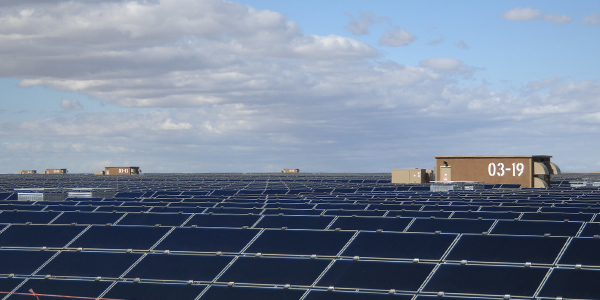By Hudson Sangree
The federal judge overseeing Pacific Gas and Electric’s bankruptcy case ruled Friday that he retains sole oversight of billions of dollars in renewable energy contracts the utility has said it may seek to reject during Chapter 11 reorganization.
In a two-page declaratory judgement, Judge Dennis Montali of the U.S. Bankruptcy Court in San Francisco said FERC has no authority over the $42 billion in power purchase agreements entered into by the utility or its parent company PG&E Corp. despite the commission’s assertion that it shares jurisdiction in the matter with the bankruptcy court.
“The Federal Energy Regulatory Commission does not have concurrent jurisdiction, or any jurisdiction, over the determination of whether any rejections of power purchase contracts by either debtor should be authorized,” Montali wrote. “Debtors do not need approval from [FERC] to reject any of their power purchase contracts.
“Any determinations of the Federal Energy Regulatory Commission contrary to [this decision] are void, of no force and effect, and not binding on this court or either debtor,” Montali wrote.
The ruling sets up an appellate court showdown between federal authorities and puts in limbo 387 PPAs between PG&E and 350 companies such as NextEra Energy and Exelon. The PPAs represent nearly 14 GW of contracted capacity.
The case began in January when PG&E filed for bankruptcy and NextEra and Exelon sought FERC’s help preserving their contracts. In response to their petitions, FERC declared it shares authority over PG&E’s wholesale PPAs with the bankruptcy court. (See FERC Claims Authority Over PG&E Contracts in Bankruptcy.)
PG&E asked the court to prohibit FERC or its PPA partners from interfering in its Chapter 11 case. It argued the only way for it to emerge from bankruptcy intact is for the court to allow the utility to abrogate overpriced renewable energy contracts — and that any input from FERC over those contracts would violate the court’s authority under bankruptcy law.
PG&E applied to FERC for a rehearing, which the commission denied on May 1. (See FERC Denies PG&E Rehearing Over Contract Dispute.)
Wholesale PPAs are not “simple run-of-the-mill” contracts between private parties, FERC said. They “implicate the public’s interest in the orderly production of plentiful supplies of electricity at just and reasonable rates and, as filed rates, carry the force of law binding sellers and purchasers alike.”
“Whether a wholesale rate is just and reasonable — and whether the abrogation or modification of a wholesale power contract is necessary to protect the public interest — is a question that the commission is statutorily obligated and exclusively authorized to consider,” the commission said.
But FERC insisted it “neither presumes to sit in judgment of rejection motions nor seeks to abrogate the role of adjudicating bankruptcy proceedings.”
Montali called FERC’s statements extraordinary and said he wasn’t buying them.
In a memorandum accompanying his order, Montali made it clear he thought FERC had overstepped its bounds when it inserted itself into the bankruptcy proceedings.
FERC “has chosen to interfere with bankruptcy courts’ decisions. Without statutory or Supreme Court authority to support its position, it in fact ‘presumes to sit in judgment’ and second-guess — no, overrule — decisions of the bankruptcy court.”
“Despite FERC’s lip service to what it describes as ‘concurrent jurisdiction’ to carry out differing and perhaps competing policies, the effect of its decision guts and renders meaningless the bankruptcy court’s responsibilities in this area of the law. For this reason, FERC must be stopped, and the division and balance of power and authority of the two branches of government restored.”
Montali stopped short of issuing an injunction against FERC and PG&E’s power suppliers, as the utility had requested, but said he would do so if necessary.
PG&E said it was pleased with the court’s decision. NextEra and Exelon had no comment.
During hearings on the matter, Montali said he wanted to issue a ruling quickly so that the parties could appeal the case to a higher federal court. That’s now likely to happen.





